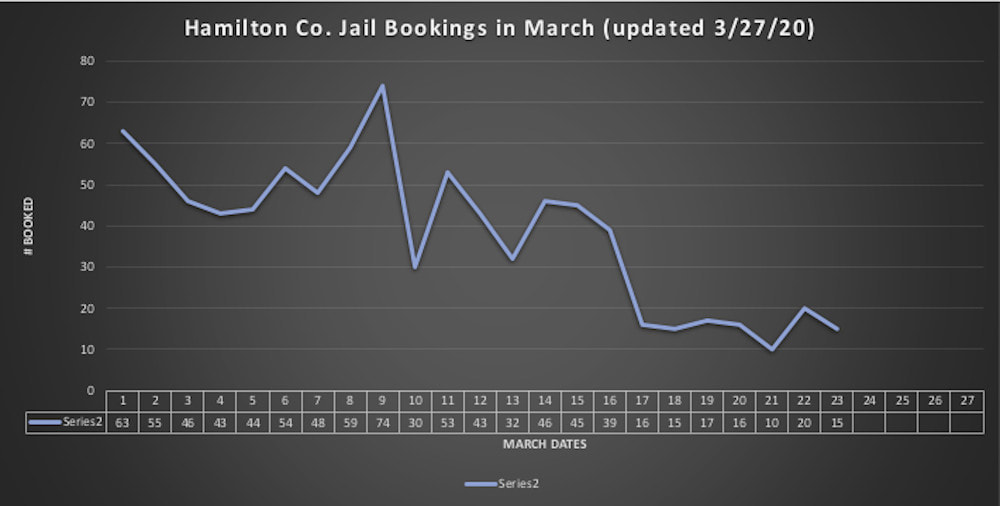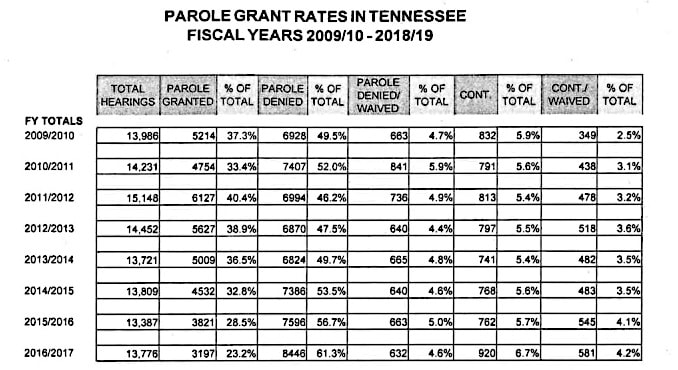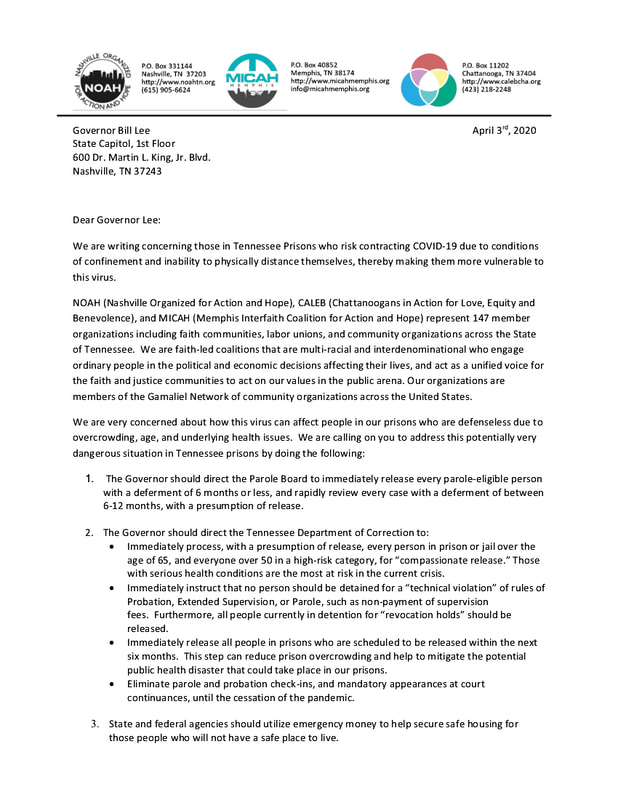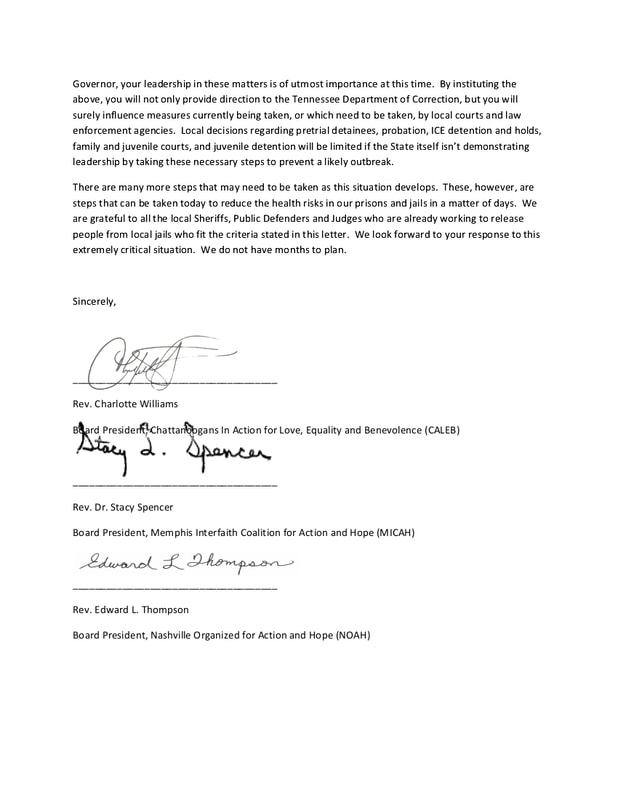|
Well before the pandemic, jailing was failing in Tennessee. Last year, 57% of people incarcerated locally in Hamilton County were held pretrial, meaning they hadn’t been convicted of their crime and were presumed innocent. Although eligible for release, many of those defendants couldn’t afford their bonds; often negligible amounts. The overcrowding of local jails has resulted in enormous expenses, with our two facilities costing the county over $100,000 per day. Similar stories multiply across the state. In rural Hamblen County, TN, a lawsuit was recently filed over excessive bond amounts and resulting overcrowding, with the jail operating at 170% over capacity. In the state prison system, 39% of people sentenced to state facilities are there for “technical violations;” non-criminal violations of probation or parole restrictions. COVID-19 now threatens these overcrowded facilities like fire near an oil tanker, and the alarms are sounding. Because incarcerated people are unable to follow recommended restrictions on separation and social distancing, transmission is an extreme risk. Correctional officers in Memphis have already tested positive for the virus. On March 24th, 40 organizations filed a petition to the Tennessee Supreme Court seeking immediate steps to decarcerate; their recommendations follow many clear and longstanding calls for reform. The following day, the Supreme Court extended their Order prohibiting in-person proceedings while requiring local judges to submit a plan for decarceration. According to Chief Justice Bivens, “There are low-risk, non-violent offenders who can safely be released and supervised by other means to reduce local jail populations. Judges, law enforcement, and attorneys must work together to identify and create an action plan to address this issue.” On Friday, March 27th, the Hamilton County General Sessions Court Judges filed their plan. It lists the past month’s reductions in the jail populations for the Hamilton County Jail (-5.6%), as well as Silverdale (-21.7%). For the duration of the Tennessee court response to COVID-19, magistrates can change warrants for nonviolent offenses and technical violations to court summons. The court also encourages law enforcement to use criminal summons in lieu of arrest at their discretion. Officers look to be taking the recommendation seriously; weekly jail bookings have dropped by 65% from the first week of March. Clearly when there is the will to act, substantial changes can be made. This same commitment to reduction hasn’t affected the state facilities, and the Tennessee Dept of Corrections states that "there are no plans for early release because of the coronavirus." Yet there is plenty of room to act. Tennessee should stop locking people up for behaviors that, for people not on parole or probation, would not warrant incarceration. If parole officers initiate the revocation process, schedule revocation hearings after the public health concerns have subsided. There are also opportunities for “compassionate release” for elderly offenders whose incarceration poses an extreme risk during the pandemic. Individuals eligible for parole or probation over the next six months should be released.
In our work maintaining the Hamilton County Community Bail Fund, CALEB continues to help individuals and families whose only barrier to freedom is wealth. We too share the goal of community safety, but we recognize that the incarceration system that we’ve inherited also produces community harm. Criminal sentencing shouldn’t come with the threat of deadly illness. Governor Lee can make decisions that support more proactive local efforts. That's why CALEB has joined with Nashville Organized for Action and Hope (NOAH) and Memphis Interfaith Coalition for Action and HOPE (MICAH), sending a letter to Gov. Lee to add our voices to the call for more effective decarceration measures within the Department of Correction. Our letter can be seen below.
1 Comment
1/9/2022 02:06:57 pm
The court also encourages law enforcement to use criminal summons in lieu of arrest at their discretion.
Reply
Leave a Reply. |
ABOUT
CALEB is an institutional coalition of faith-based, labor, and community groups working to build power to affect change in Chattanooga, TN. Archives
April 2024
Categories |






 RSS Feed
RSS Feed